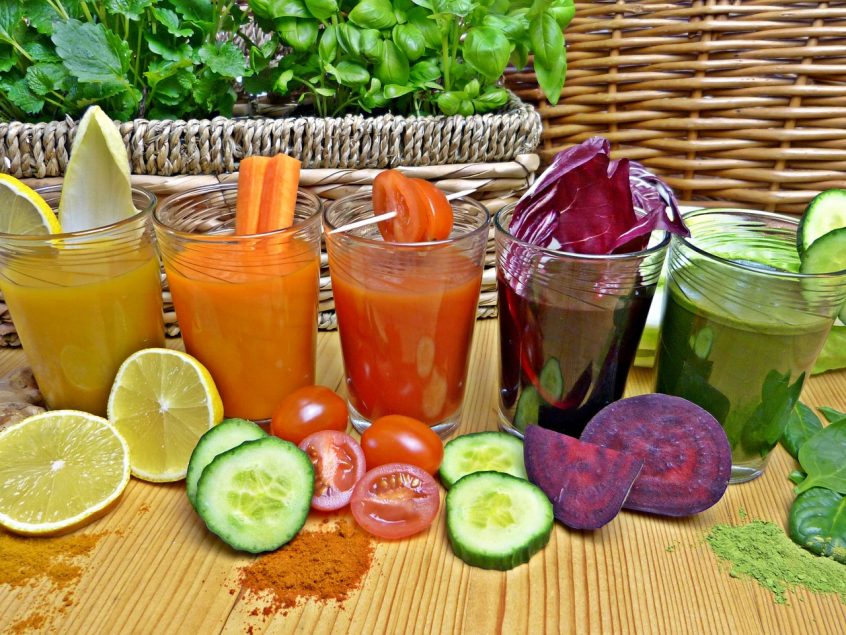Spring has sprung, and with it has come another onslaught of misinformation about dieting and weight loss. You may have noticed an increase in articles on how you can lose that “winter weight” and get your body ready for summer. Over the next few months, I am going to analyse some of the more popular diets, discuss the scientific evidence , and give you my verdict on whether they are worthwhile or not.
So let’s get started with detox or cleansing diets.
The diet
Detox and liver cleansing diets have been around for years. They are based on the premise that to remain healthy, we need to periodically cleanse and purify our body by eliminating the “toxic waste” that has built up from our environment, diet and lifestyle. They often claim that detoxing the body will help promote a healthy gut and improve digestion, improve immune function, increase energy levels and promote weight loss.
Detox or cleansing diets vary considerably and can last from one day to several months. Each specific diet has a different plan and level of restriction but most will include:
- Fasting or a liquid only diet
- Drinking plenty of water or juices
- Consuming only fruits and vegetables
- Avoiding wheat and dairy products
- Avoiding caffeine and alcohol
- Using herbal or laxative preparations or supplements
These diets are generally very low in energy and do not provide adequate amounts of essential nutrients.
The evidence
There is no evidence that detox or cleansing diets are necessary or effective. There is no evidence to show that they improve bowel health, prevent colon cancer or are an effective strategy to support long term weight loss.
There is not even any reliable evidence to suggest that the body is fatigued by normal digestion or retains toxins that are damaging to health. On the contrary, the human body is an incredibly efficient, well designed system that has very effective mechanisms to remove toxins and waste products from the body. The gastrointestinal tract ensures we absorb nutrients from food into the blood stream for distribution throughout the body, while the remainder is excreted as waste. The kidneys filter our blood to remove any waste products. The liver is also an important filtration system. It helps process and eliminate toxins from the body. The lungs remove carbon dioxide from the blood as a waste product every time we breathe out. A cleansing diet does not enhance any of these natural processes. In fact, an inadequate, restrictive diet can prevent our body from functioning optimally.
Possible benefits
Drinking plenty of water and being well hydrated is sensible and this aspect of a detox diet is positive. Reducing your intake of alcohol and caffeine is also positive. Avoiding highly processed foods that are high in fat, sugar, and have very little nutritional value is an excellent change and another positive aspect of this diet. Most importantly, eating plenty of fruit and vegetables is beneficial for everyone and incredibly protective for promoting good health and wellbeing but there is no additional benefit to juicing.
There is some evidence that weight loss can occur with a detox or cleansing diet. This is likely to be due to the significant reduction in energy intake which requires our body to use its emergency energy supply stored in our muscles and liver. This results in fluid loss which accounts for most of the weight loss, not a reduction in our fat stores. Unfortunately, it also means that the weight is easily and rapidly regained after returning to a normal diet.
Possible side effects
A detox or cleansing diet can have many side effects including:
- Lack of energy, fatigue
- Dizziness or lightheadedness
- Headaches or migraines
- Nausea or vomiting
- Bloating, abdominal pain or cramping
- Bad breath
- Diarrhoea
- Dehydration
- Electrolyte imbalances
- Vitamin and mineral deficiencies
- Changes to blood glucose levels
- Changes to blood pressure
- Long term weight gain
Some products used during detoxing or cleansing, including colon cleansers can be harmful.
People at particular risk of complications from detox and cleansing diets include those with diabetes, kidney or liver disease, cardiovascular disease, irritable bowel syndrome or eating disorders. Women who are pregnant or breastfeeding should not follow a detox or cleanse. It is not suitable for children or adolescents to follow a detox or cleanse.
In a nutshell
Detox or cleansing diets can be difficult and costly. They include a restrictive pattern of eating and may incorporate laxatives or supplements. There is no evidence to support their need or effectiveness. It is a marketing myth. My recommendation is to save your money, effort and discomfort and incorporate the positive components without the cleanse.
- Drink plenty of water
- Include plenty of fruit and vegetables
- Reduce your intake of tea, coffee and energy drinks
- Reduce your intake of alcohol
- Reduce your intake or processed foods that are high in fat and sugar
If you would like help with developing healthy eating or lifestyle behaviours, or if you would like practical assistance for making any of these suggested changes to improve your health, please contact me. You can find my contact details and how to book an appointment on our website at www.zestinfusion.com.au.
Share this Post

